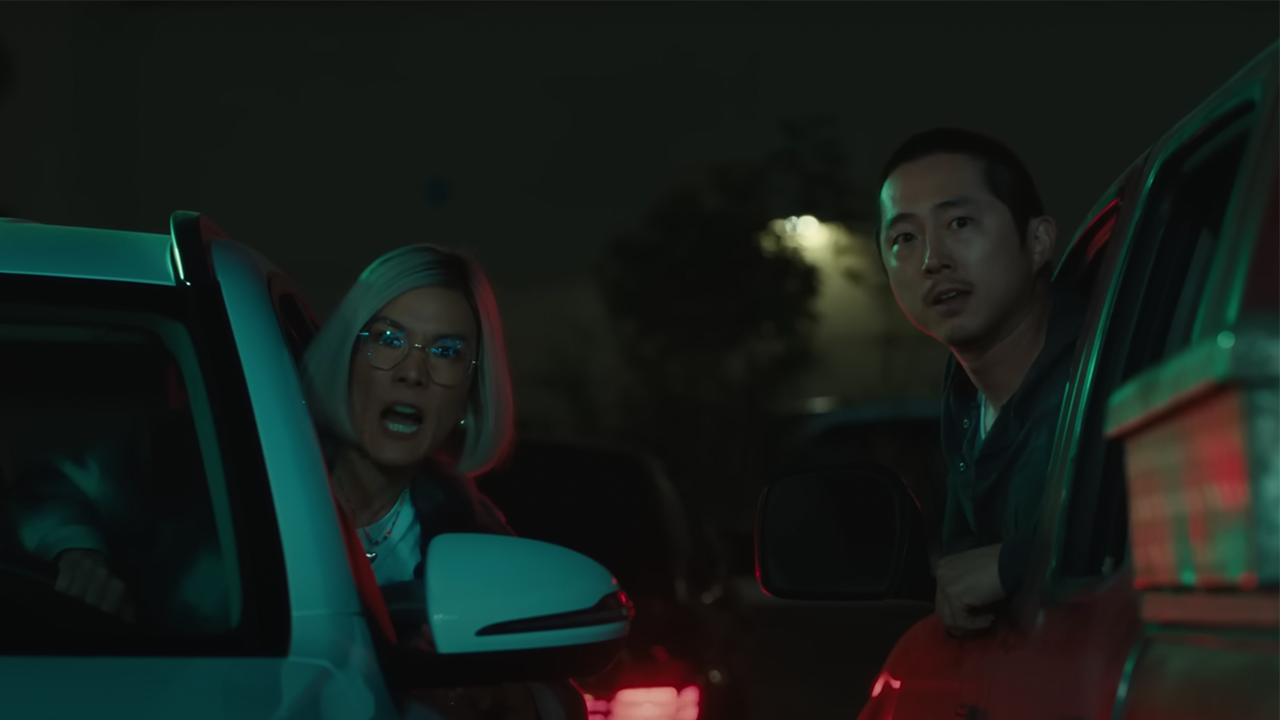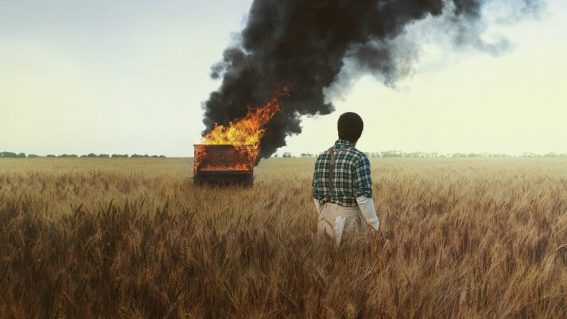A masterclass in escalation, Beef is your next must-watch Netflix drama

A road rage incident turns into an explosive catalyst in Netflix’s addictive new series Beef. Luke Buckmaster applauds the A24 dramedy’s unpredictable momentum and stunning lead performances.
The raucously entertaining Pam & Tommy did an impressive job wringing an entire eight episode season from a single event: the theft of Pamela Anderson and Tommy Lee’s infamous sex tape. But that show, with its various narrative vantage points and tonal changes, pales in comparison to the flair and audacity of creator Lee Sung Jin’s strange, gripping and darkly comedic Beef—your next must-watch Netflix series. Jin truly embraces the idea of using one particular incident—here, an instance of road rage—as the fountainhead for a series of escalating dramatic scenarios, all narrative paths leading back to that moment of original sin.
I use that term to describe a new era of wickedness in the lives of wealthy self-made businesswoman Amy (Ali Wong) and struggling independent contractor Danny (Steven Yeun), rather than to imply these people have never committed whopping big wrongdoings before. It becomes obvious we haven’t merely met them on a bad day: both are clearly no strangers to rumbles and altercations. Outraged when Amy blasts her horn at him then follows it with a one-finger salute, Danny tears down the road after her, yelling obscenities and vowing revenge, unknowingly opening up a Pandora’s box of chain reactions.
The writers smartly configure their initial altercation as neither—or perhaps that should be both—of their faults. Danny doesn’t exactly assuage the situation when he tracks down where Amy lives, and, posing as an electrician, urinates all over her bathroom. Then she finds out where he lives. And then…and then…and then…this symphony of revenge accelerates, always seemingly on the cusp of crescendo, only for the music to get louder and the stakes to intensify. The screenwriters establish a ping-ponging rhythm of action and counter-action, stretched across Beef’s entire 10 episode season, interspersed with quieter threads fleshing out their relationships with other, sometimes far nicer people.
Amy’s artist husband George (Joseph Lee) is a gentle soul, describing anger as “just a transitory state of consciousness.” While on his hands and knees, scrubbing away Danny’s pee stains, he encourages his wife to “let it go.” She doesn’t. Danny’s younger brother Paul (Young Mazino) is sweet but naive, while their hoodlum cousin Isaac (David Choe) is a livewire, always finding trouble and bringing others down with him.

Amy and Danny present more or less as decent, “ordinary” people—not the hotheaded goons the viewer, gifted with the ability to observe them behind closed doors, understands them to be. “You have this serene, zen buddhist thing going on,” a billionaire (Maria Bello) acquiring Amy’s business tells her: an ironic wink to the audience. It would’ve been easy (and comforting) to frame their central feud through a moralistic lens, each instigation and escalation feeding into a message that every attack on the other person equals an attack on themselves.
There’s an element of that, but Jin et al have bolder and more inventive things in mind. The writers do a great job not just keeping the plot unpredictable, but also the show’s messaging and ideology. Among Beef’s refreshingly twisted propositions is that Danny and Amy, each disenfranchised for different reasons, find a purpose, a justification for existing, a raison d’être through their war against each other. The spat focuses them, concentrates them, provides an outlet for pent-up frustrations. Which is not to say it makes them happy: both are obviously depressed, Amy not much (if at all) happier than Danny despite being in another stratosphere of wealth and privilege. The series constructs an original depiction of mental illness and chips away at class commentary from unexpected directions.

The tone is darkly comedic, and the performances exceptional. Ali Wong is eerily convincing as someone who projects a carefully postured version of themselves to certain people (including loved ones) and lets it rip to others; you watch and wonder who in your own life might be putting on a facade. Maybe everybody, to some extent? And it’s hard to imagine anyone other than Steven Yeun as Danny: he makes every twitch of frustration, every flush of anger, every pang of disappointment resonate. The characters take you by surprise, but never in ways that feels contrived or out of sync with their personalities. We learn and grow with them—even if we wish we could magically appear and beg them to stop.
The script regularly returns to the two key questions Breaking Bad creator Vince Gilligan asked his writers to address. One: “what’s going the character’s mind?” And two: “What happens next?” We saw that approach play out brilliantly in Breaking Bad, and it also works spectacularly here, pairing psychology with plot momentum. You won’t guess where Beef is headed, that’s for sure: it’s a rollercoaster ride of rage, with strangely cathartic outcomes.
















